Twenty years ago, when I decided to pursue writing, I asked myself, “Even if this doesn’t work out the way you want it to, is this something you still want to do?” I said yes. I wanted to try—gosh darn it—and I was going to keep writing anyway.
But as disappointment after disappointment has rolled in, it’s been hard to stay in the sea of unknowing. Yet, here I am, still splashing, sinking my feet in the sand, and finding my footing along the shore. Why?
A brief history
After I was fired from my position as a Waldorf teacher at a fledgling school in Portland, Oregon, I went through a messy time trying to figure out what to do. Although I did manage a year of postgraduate classes in elementary education before dropping out. (I couldn’t deal with the debt or another dysfunctional teaching experience. Ha!)
But I had about seven job-seeking bibles like What Color is Your Parachute? on my living room floor when I realized I was having a ‘where are my glasses—oh, they’re on my head’ moment. Writing! But of course! Even after my family strongly discouraged me (causing me to cry and hold an honorary pity party—we’re better now), I still proceeded to check out and read every library book on writing that held my attention.
And I wrote, wrote, and wrote.
What no one talks about
Everyone is aware you need time to write, but you also need money.
I was raised in a working class home and have been teaching in developing countries for the past 15 years. Long ago, I made the choice to pursue curiosities, and as luck would have it, that didn’t include 100 Rolls-Royces. There’s nothing about me that says inheritance or disposable income. And as if that wasn’t bad enough, I always fell for the boys who rode bicycles to work, recited poetry by heart, and ate food off of other people’s plates.
So, I’ve become a queen (more like a pauper) of freebies and foraging for online content by experienced writers and folks in the industry. I’ve cautiously invested in improving my skills, but I avoid pay-to-play contests and publications. After all, the odds are not in my favor. I’m no Hemmingway.
But I have fretted over whether or not I needed an MA in Creative Writing, or to fly somewhere to participate in writing conferences, or to pay for the privilege of face time with an agent to tell me, don’t give up.
Writing is a business, kiddo. Writing is a business. Say it with me: writing is a business.
You’re not what they want
I’ve read many great essays over the years, but a couple standout. The first one was from an older woman who was letting go of her dream of becoming a writer after decades of trying to breakthrough, and the second one was a woman’s experience at writing conferences. Essentially, she shared that agents didn’t want to see another pitch from a senior citizen. And I couldn’t help but think, isn’t this the demographic who typically has the time and money to do this?
Literary magazines, contests, and other writerly opportunities often are looking for a particular person, and most of the time, I’m not it. If you do find a publication that accepts your work, you have to keep moving on because they don’t want to hear from you again for another year or two. And this is not to say I’m not grateful. Are you kidding? These have been joys and hoorays along the way. I’m just saying, this is the work.
When I was on Twitter, decades ago, I remember a blogger friend was part of a community of writers who followed you, if you followed them, and this was how they amassed a large following, so they looked good to literary agents. And this was how my friend caught the eye of a small press.
I was late to social media, don’t like the way it makes me feel, and these days hardly use it. Things that I originally thought were strengths, or of interest, like being an Asian American living in Asia, being part of an international community, it turns out, worked against me. But that’s okay. I am who I want me to be, and this is part of the work, too.
Edit, repeat, rinse
When I set out to get my first memoir published (see: Waldorf disaster), I did my best, but was woefully ignorant of what the publishing world wanted. So as a consolation prize, I self-published physical and e-book copies though KDP, and my audio through Gumroad.
I relied upon friends as editors. My husband and I designed the book cover through Photoshop. And as a result, I changed book covers three times over the years and re-uploaded the manuscript many times to fix mistakes.
All in all, it was a massive undertaking and learning experience. I have no regrets though because now I know what it’s like working with editors and publications. And honestly, I’m not sure if younger me would have retained my voice and vision in my desperation to be agreeable.
All of our agents are busy, please hold the line...
For years, I wrote, rewrote, and locked away my second memoir. I wanted to learn from the mistakes I made with the first one. I tried to get my work out there and wrote humor pieces, since I know that’s a strong point for me. Then, finally, I researched agents, and wrote a damn fine query letter. I know this because a thoughtful agent responded with this:
Lani, This is REALLY well pitched, but I’m shying away from memoir. The world’s obsession with fame seems to blot out all else in the category. But my colleagues might like what you’re up to. I’m going to share your query with them. If there’s interest, you’ll hear in the next ten days.
Despite not hearing back from anyone else, I pulled up my big girl pants and kept researching appropriate agents. And then, I found one! She said she’d love to take a look, so I sent her the entire manuscript. And then I waited, because that’s what your supposed to do.
After a few months, I inquired, ever so gently, so as to not disturb her. She said she hadn’t got to it, but give her time! She’s going to tackle it very soon. So I waited some more, which was easy because as a teacher, I’m busy, too. In fact, this whole business (along with being an expat) has forced me to be a more patient person.
But there came a time, maybe it was at the additional 6-8 month mark, I don’t remember anymore, that I feebly poked her again. I knew, by then, but it was unfinished business and nobody likes business of the unfinished kind. She said she had decided to become a children’s book literary agent instead! Woohoo! And sorry, never got to your manuscript. So sorry, Lani!
During this time, I kept pursuing agents, but eventually I said, enough.
Me lucky charms (not just a breakfast cereal)
The writer who stands on a stage and says, “Yes, I worked my ass off, but I also got lucky,” deflates every would-be writer in the room because they want that secret sauce. What’s the recipe, so I can follow it! Yet, anyone who attributes their success to luck is simply being honest, as luck plays a significant role in success. Hard work and talent are obviously part of the ingredients, but it’s hard to sell luck, so we say things like “make your own luck” and convince ourselves that if only we pushed ourselves a little more, or if only we were a little more clever about cutting out the competition...then we’d be where we want to be.
From here to eternity
There was a time when I was resentful that I didn’t have the disposable time or funds to pursue writing full time. But after watching artist friends and writers turn themselves inside out day after day and receive so little, I don’t feel that way anymore. It can be a hard life chasing likes, subscribers—you know—approval. Many folks resort to gaming the system, but that’s not for me.
Household name writers tend to be a handful of repeats on bestseller lists. The chances of going viral are extremely low. But despite the odds, I tried something new this year, I got on Substack, and I’ll most likely self-publish my second book. I haven’t worked out the details yet. Maybe I’ll serialize it here? I don’t know, but I know the day will come when I do know.
It’s taken me ten years to say this, but I’m proud of my first memoir. It’s not perfect, but it captures an important time in my life, one that feels so far away these days. And that’s good.
At the beginning of this literary journey, self-doubt was my shield, but now, it’s my values. These cozy words (like freedom, independence, and beauty) keep me company in a world where I’m a number. My values help me decide what to pursue and when to let go. Every day before work, I write at least 500 words. When life feels like a grind, my mom reminds me to be strong—and I’m reminded of what matters, and to not take things so seriously!
Veronika reminds us that time is captured by seasons, and Seth urges us to wake up and stop believing we need this or that to be successful.
And I’m reminded of the many people who have taken the time to read my writing, who purchased my book or audio, left thoughtful comments on Amazon (!), who have been with me for YEARS through my blogging and newsletter, and to the new friends I’m making here on my latest adventure on Substack.
In all honesty, with the state of the world being what it is, it’s a privilege to read and write, and enjoy each moment I’m healthy and alive.
And I’m going to keep writing anyway.


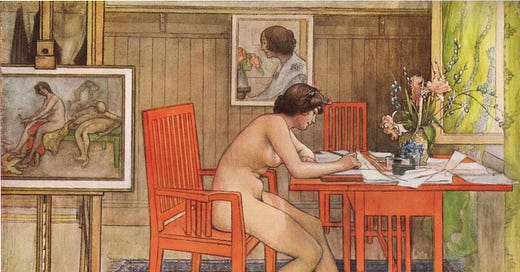



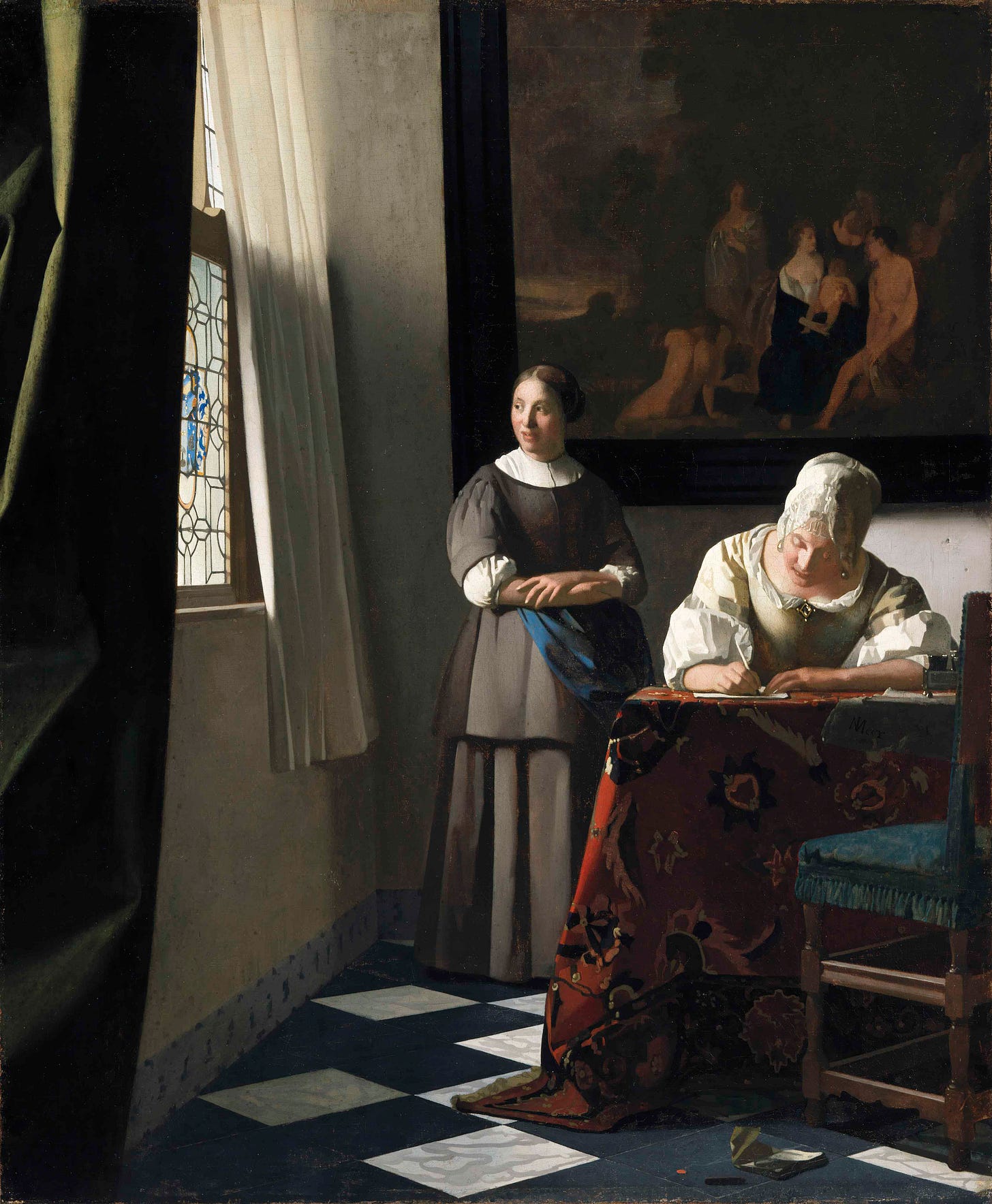
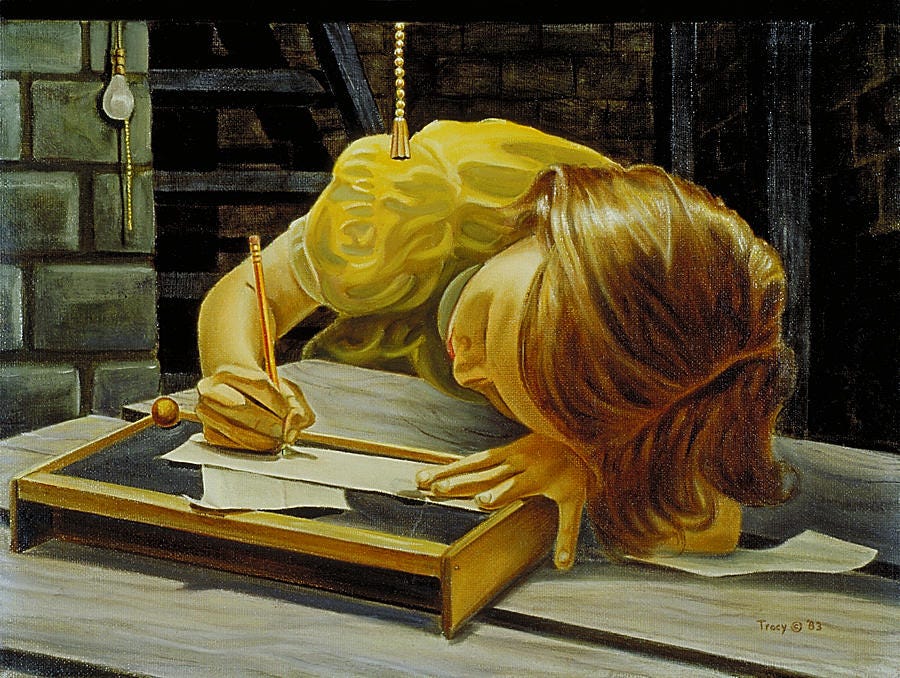
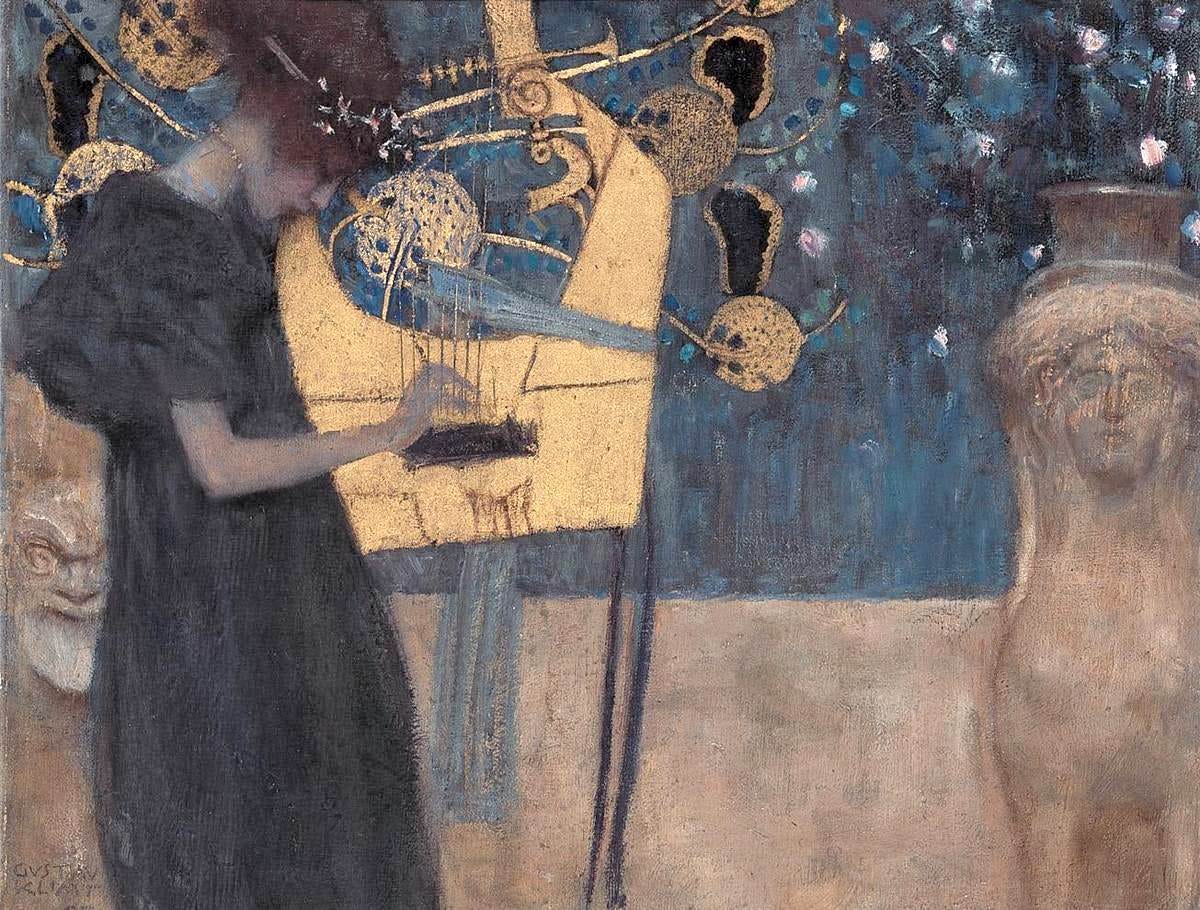
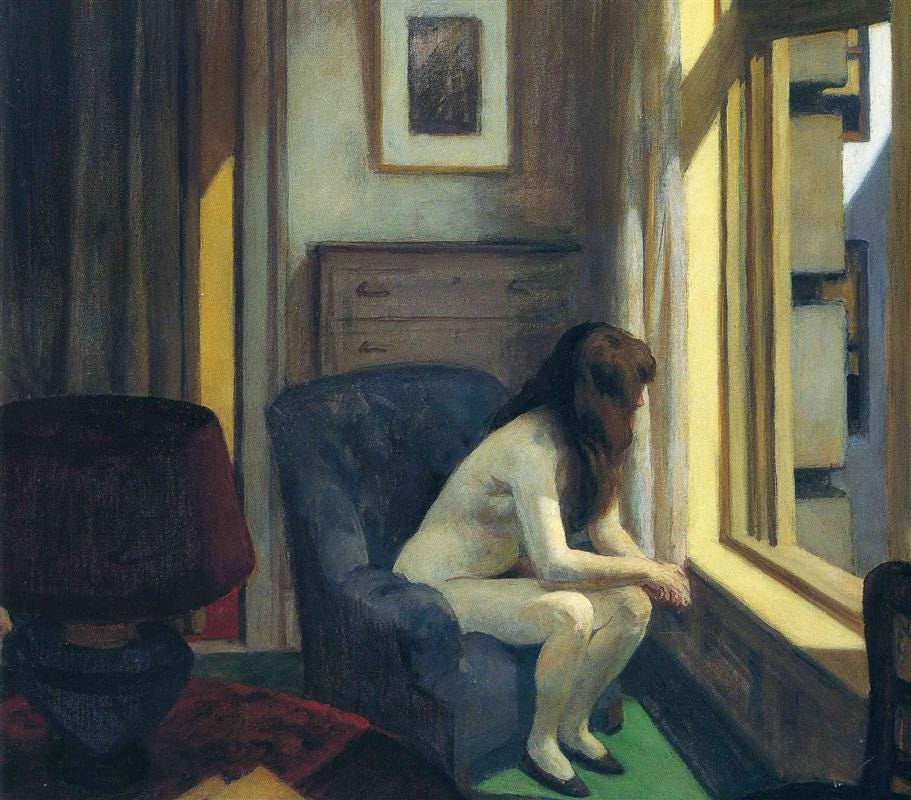
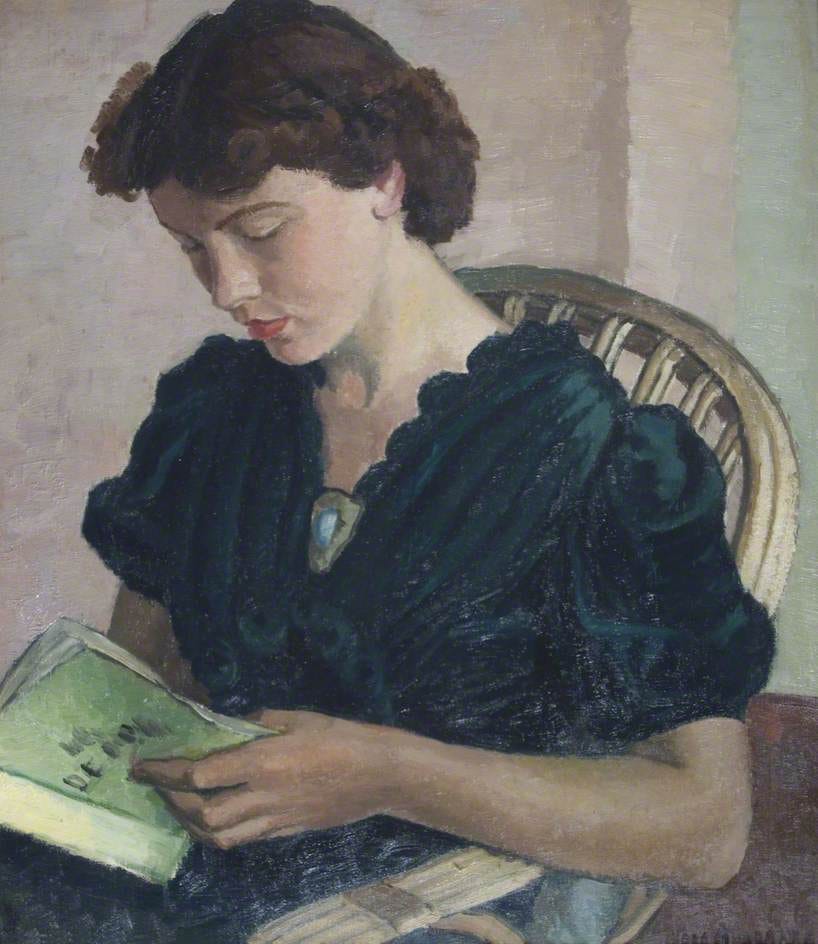

I have read this piece more than once, something I often find myself doing with your writing, Lani. (Disclaimer: Not sucking up here, at all) Naturally I relate hugely to everything you say here although you have accomplished much more than me, having written and published actual books - even if nothing else happens, THAT is such a monumental thing to achieve. I happen to believe that the process is everything, honestly. And I would also suggest that you may.not be ABLE to stop writing anyway. I have tried to do this for years at a time but I always seem to get lured back in. It is such a slippery thing to explain isn't it? Like a moth to a flame. I loved the accompanying artwork you've used as well. I've found that Substack hosts a lot of brilliant writers and you're one of them, honey.
Lani, hearing you share your story and experiences, and listening to you read this in your own voice, was a gift. Thanks for your honesty and transparency. I find your writing beautiful, and I came to the conclusion a long time ago that traditional publishing doesn't really suit everyone. I have been self-employed often in my life, and I have spent lots of time learning about the book writing and publishing business. Six years ago, my husband helped me send my work to an agent who requested I do so, and then she fled a domestic violence situation right about the time I had expected to hear back from her. I knew that wasn't going anywhere. That experience was a reminder that agents are people too, and so many factors enter into the whole business.
The same conference, an acquisitions editor invited me to wait nine months and send her my manuscript that I had pitched to her. She had been very encouraging, telling me what it would take for her to sell this project to the publishing board, and it looked kind of hopeful. But right about that time when she would have received my manuscript, she made the decision to retire, and I don't think that she had planned on this timing. However, when both she and a well known agent had expressed interest, I felt so encouraged. But when things fell apart due to circumstances totally unrelated to my work or abilities, I actually felt like it was a sign. My husband and I wondered if giving an agent a cut of small profits was really necessary anyway.
I know from some very "successful" trad published friends that most of them don't earn very much, though they work extremely hard. I've helped with their book launches, and I've learned a lot from doing so. I personally smile when I think about letting go of that goal a few years back. To tell you the truth, while I respect them and celebrate their successes, my friends who are traditionally published don't seem any better off than friends who learn the ropes and do a really quality book and self publish. My first book project, a 100+ page "workbook" (though maybe it's more of a shorter book with workbook exercises in truth) sold enough copies that I felt really good about it, and this project made a difference for families and individuals in several countries, so I felt very pleased. I kept the handwritten notes I received from readers who shared what this book had meant to them, and that felt like the best pay I could receive. I actually made a decent income from that project, and since I only had the printing costs to pay for, the profit margin was much higher than a traditionally published writer would ever see. The way I see it, I admire people who do a quality job on an indie book, and if they invest the time needed to market and launch the book, lots of people benefit from their work anyway.
I love Substack. I see people growing as writers and thriving here. The connections make it all worth the effort. And for those of us who NEED to write, it's a beautiful place to connect with readers.
I don't need the validation or even income from writing to feel really great about my experience at this point. You mentioned needing money to write full time. That's true to some extent. My friends who have published traditionally had spouses who had stable, adequate income. In my younger years, I was like you--teaching overseas and leading a very full life. I have time now, and that's a joy. I still see some coaching clients because I enjoy using my counseling skills, and writing is another way I can strengthen and encourage others. There are a few advantages to getting a bit older and also to having a serious neurological condition like multiple sclerosis. I haven't been able to work full time for quite a while. That gave me some freedom I wouldn't have yet at this point in my life. I am very grateful to have access to some amazing writing mentors and organizations, and to learn from people who know the business. But it can be an expensive "hobby" as we sometimes jokingly say. I just feel blessed I get to keep writing and growing a readership that let me know the difference my writing makes has been a gift. Thankful you're still writing, Lani. I loved this article!